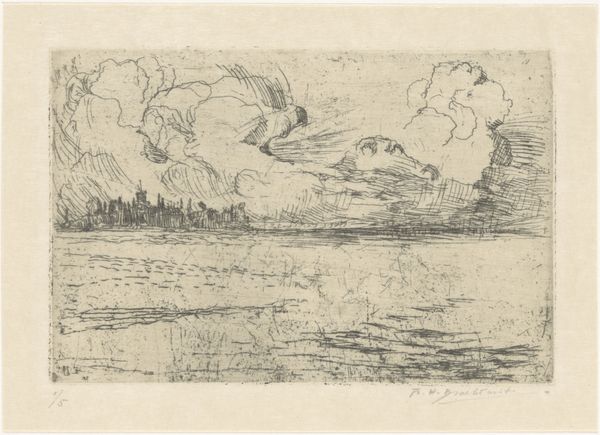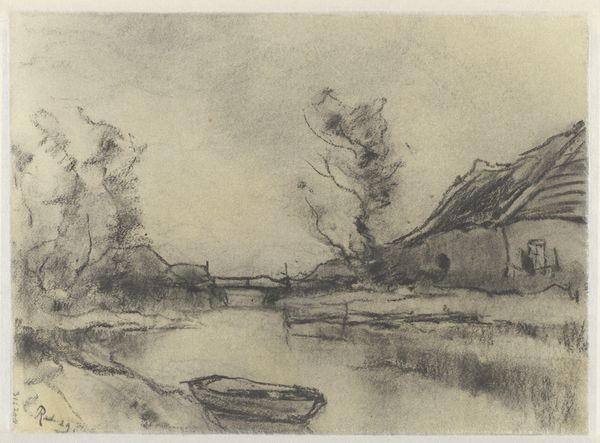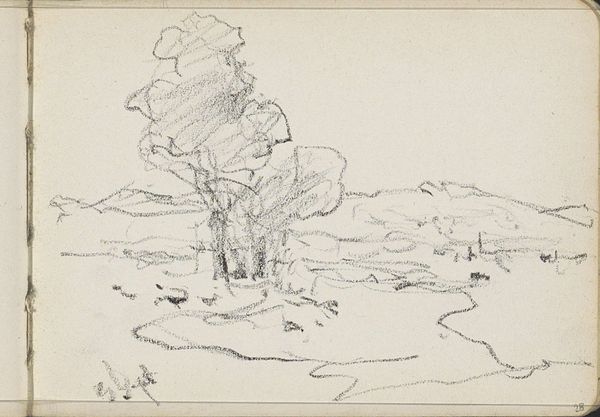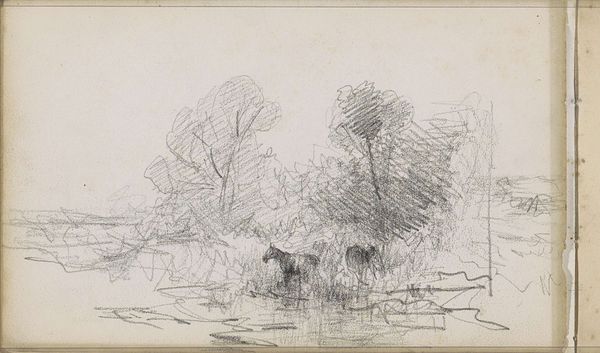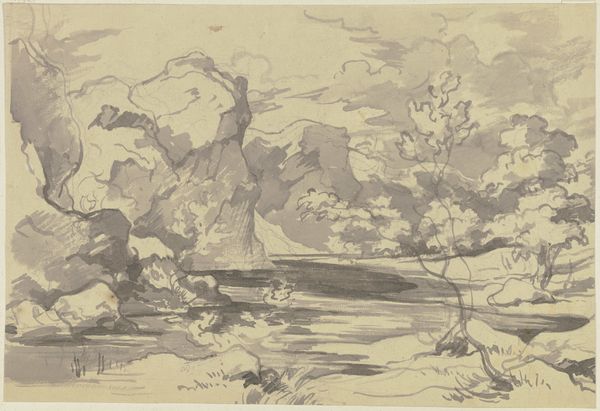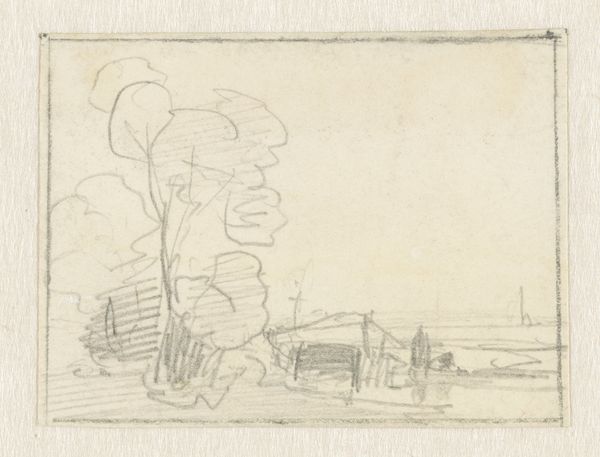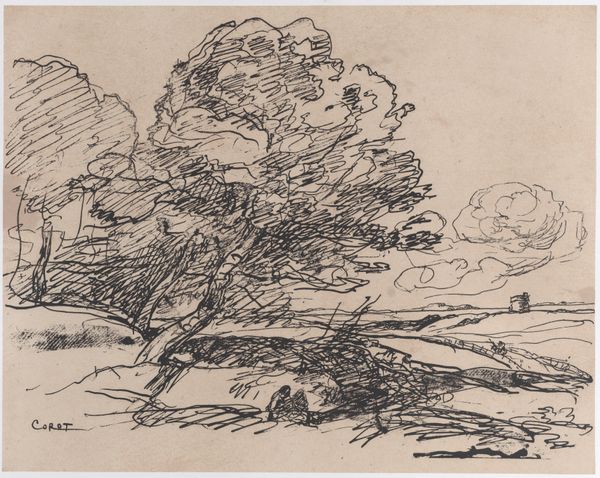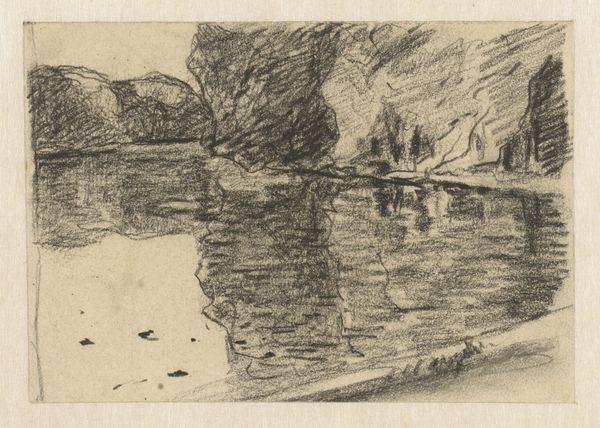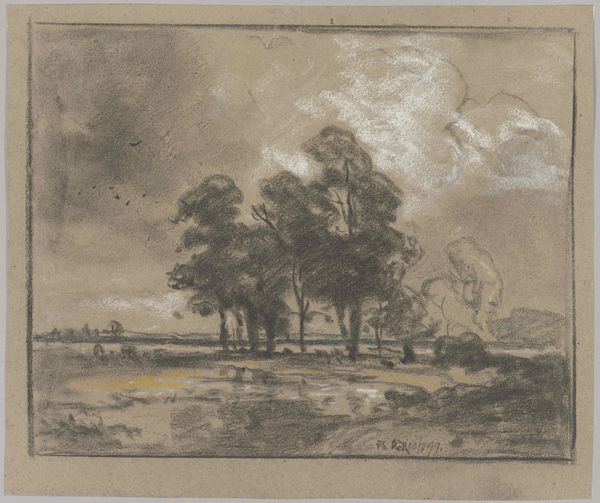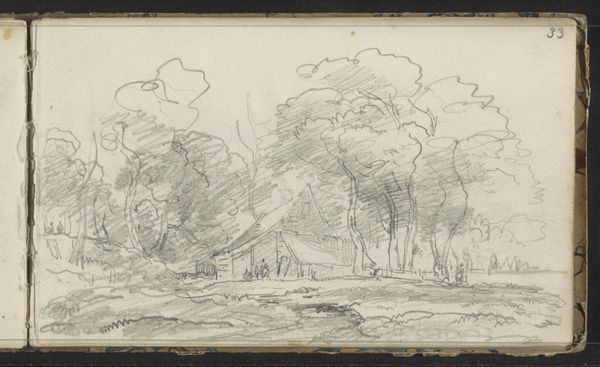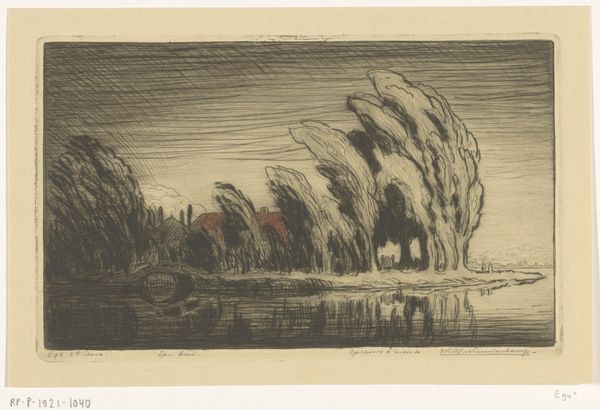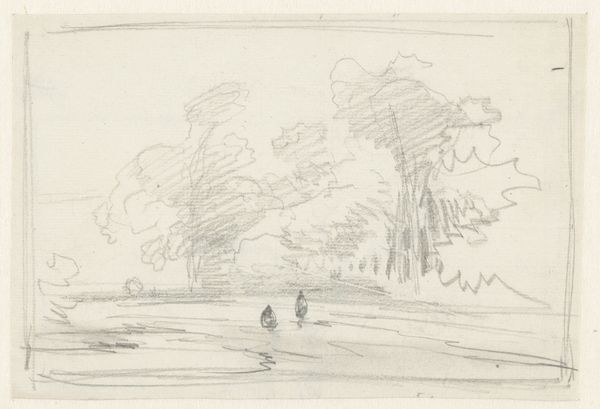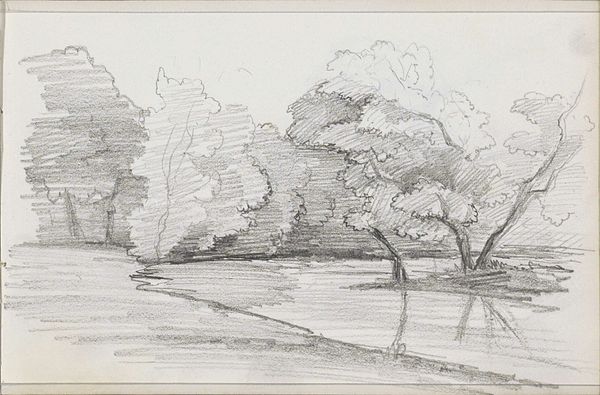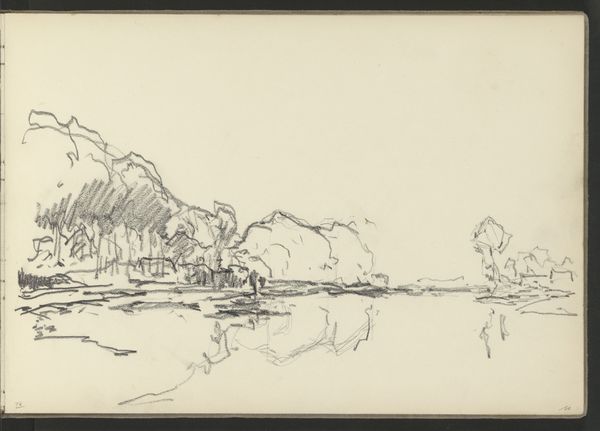
Dimensions: 468 × 623 mm
Copyright: Public Domain
Curator: Standing before us is Piet Mondrian’s "Landzicht Farm: Compositional Study," rendered circa 1905. The piece employs charcoal and pencil on paper. Editor: Immediately, the overwhelming darkness captures me, the heavy charcoal forming a brooding sky mirroring its form in the water below. There’s a raw, almost desolate feeling to it. Curator: Indeed, Mondrian, though we know him later for stark abstraction, here engages with the social realities of rural life in early 20th century Netherlands. This study provides insights into land ownership and labor during a time of shifting agricultural practices. One can almost feel the weight of societal expectation pressing upon the land and those who worked it. Editor: But consider how that socio-political context manifests through the artist's technique. Notice the loose, almost frantic application of charcoal. The tonal gradations create depth but also a sense of unease. The compositional tension lies in the stark contrast between the dark, almost overwhelming sky, and the fragmented reflections of the farm in the water. Semiotically speaking, water can symbolize transformation and the subconscious; perhaps Mondrian hinted to the drastic changes in society within this element. Curator: That's a fascinating connection. The reflections can also signify the artist's inner state, the push and pull between tradition and modernity. One should not view it as merely a scene—this composition shows the struggle within the context of rapid industrialization and shifts in agricultural labor. How does it challenge ideas of romanticizing the agrarian lifestyle of the time? Editor: Absolutely. Yet, consider the balance he achieves despite that inherent tension. The horizontal lines of the landscape cut through the swirling charcoal, giving structure to the overall chaos. There's a push-and-pull dynamic that ultimately resolves in a surprisingly stable visual experience. Curator: I find this "Compositional Study" far from resolved; instead, a statement on his shifting perspective rooted in socio-political anxiety of his time. Thank you for contributing with this perspective on formal elements. Editor: The work offers a glimpse into Mondrian's evolving process and how even his early work contains the seeds of what was to come. The negotiation between structure and the ephemeral marks, for me, what made it unique.
Comments
No comments
Be the first to comment and join the conversation on the ultimate creative platform.
